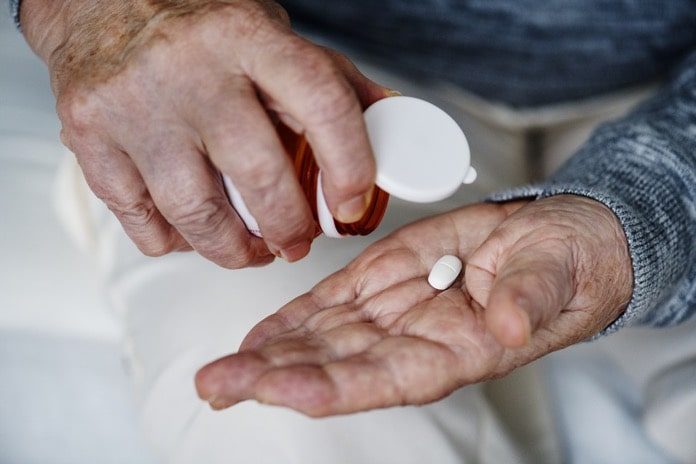Researchers at the Mayo Clinic compared the efficacy and safety of oral apixaban with heparin for blood clot treatment in cancer patients.
One out of five patients with cancer is at the risk of developing a clot in their veins. These clots are dangerous and are the second most common cause of death in cancer patients. The conventional blood clot treatment for such patients is twice-daily injections of low-molecular-weight heparin and has a lot of limitations.
These injections can cause pain and bruising at the injection site and are expensive at almost $100 a day. Moreover, cancer patients may have low platelet counts and can be at the risk of developing a clotting disorder called heparin-induced thrombocytopenia. Also, cancer, as well as its treatment, can cause kidney injury, which is further a constraint in using heparin to prevent clots or treat them in cancer patients. In addition, lack of a good antidote for heparin in case of a bleeding problem is another big challenge.
Recently, there has been an increase in the availability and use of direct oral anticoagulants such as oral apixaban, which have a number of advantages over heparin. These drugs can be taken orally, they do not interact with foods or other medications, and there is no need to monitor drug levels. However, until now it was not clear whether these drugs should be used safely in cancer patients to treat arterial clots and improve blood flow.
Researchers from Mayo Clinic compared the efficacy and safety of oral apixaban with low-molecular-weight heparin for blood clot treatment in cancer patients. The findings of this study were presented at the annual meeting of the American Society of Hematology that took place on December 1-4, 2018 in San Diego, California in the United States.
The trial was conducted in cancer patients and the data were compared through the quality of life surveys, which were taken every month, throughout the six-month trial. The study showed that oral apixaban was safe and effective for blood clot treatment in patients undergoing cancer therapy. Oral apixaban was associated with fewer major bleeding events and fewer recurrent blood clots when compared to low-molecular-weight heparin. It was also observed that patients preferred oral apixaban over injectable dalteparin. It is expected that use of oral apixaban to treat clots will improve medication compliance in cancer patients who require therapy with blood thinners.
Written by Pratibha Duggal
Reference: “Mayo Researchers Say Oral Apixaban Safe And Effective For Treating Blood Clots In Cancer Patients”. Https://Newsnetwork.Mayoclinic.Org, 2018, https://newsnetwork.mayoclinic.org/discussion/mayo-researchers-say-oral-apixaban-safe-and-effective-for-treating-blood-clots-in-cancer-patients/. Accessed 17 Dec 2018.



